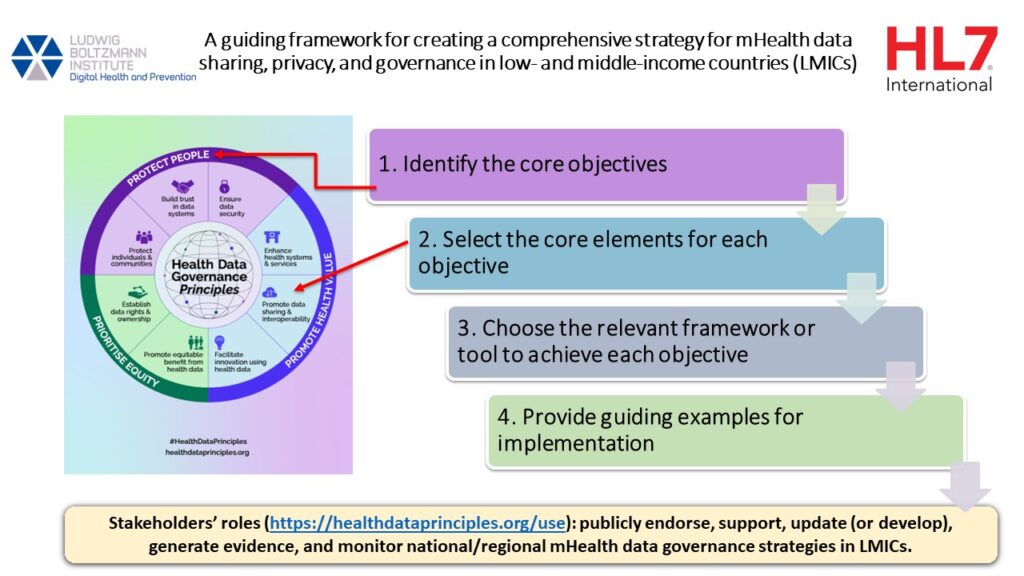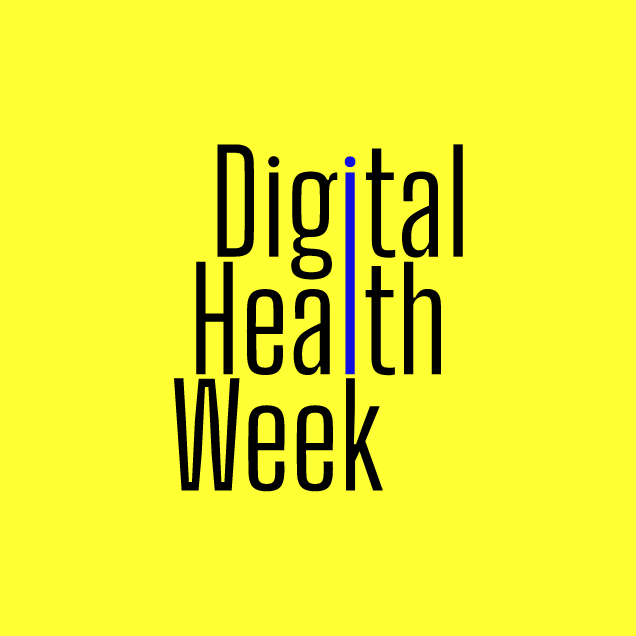

Engagements
Les engagements de la Semaine de la santé numérique peuvent être financiers, programmatiques, réglementaires/politiques, de plaidoyer, fondés sur la recherche ou axés sur la diversité et l'inclusion. Ces engagements sont affichés sur le site Web et servent de mécanisme de responsabilité publique pour votre organisation.
Présentez le travail en cours et les projets futurs de votre organisation pour accélérer la transformation numérique de la santé en prenant un engagement SMART (spécifique, mesurable, réalisable, pertinent et limité dans le temps).
Si vous souhaitez prendre un engagement ou réaffirmer un engagement antérieur, cliquez sur la case ci-dessous.

Institut Ludwig Boltzmann pour la santé numérique et la prévention
-
 Mondial
Mondial
-
 Réglementation et politique
Recherche et connaissances
Réglementation et politique
Recherche et connaissances
-
 2022
2022
By December 2022, the Ludwig Boltzmann Institute for Digital Health and Prevention will publish a guiding framework for creating a comprehensive strategy for mHealth data sharing, privacy, and governance in low- and middle-income countries (LMICs) underpinned by the Principes de gouvernance des données de santé.
Institut Ludwig Boltzmann pour la santé numérique et la prévention
-
 Mondial
Mondial
-
 Réglementation et politique
Recherche et connaissances
Réglementation et politique
Recherche et connaissances
-
 2022
2022
Institut Ludwig Boltzmann pour la santé numérique et la prévention
-
 Mondial
Mondial
-
 Réglementation et politique
Recherche et connaissances
Réglementation et politique
Recherche et connaissances
-
 2022
2022
Comment votre engagement contribuera-t-il à la transformation numérique de la santé et à l’utilisation efficace des données pour parvenir à la CSU d’ici 2030 dans votre pays ou région spécifique ?
Within the past decade, global health organizations and research institutions addressed the potential of digital health (through several mHealth initiatives) in revolutionizing the health systems in Low- and Middle-income Countries (LMICs). Furthermore, digital health plays an essential role in achieving the United Nation (UN) the Sustainable Development goals (SDGs), mainly Universal Health Coverage (UHC). Recently, COVID-19 had accelerated the adoption of digital health tools in LMICs to a great extent. However, ethical challenges are considered one of the main obstacles in digital health in which data privacy, protection, and consent along with ethical concerns relating to data ownership should be resolved. Particularly in LMICs, we need to address how to create a national health data governance strategy that will ensure data sharing and privacy protection.
The developed framework will provide a guideline for creating similar mHealth data governance strategies in LMICS (based on the novel framework of Health Data Governance Principles). We have identified three objectives for PCD governance, namely:
– Prioritize equity through establishing PCD rights and ownership,
– Protect people through building trust (patients’ perspective)
– Promote health value through enhancing systems and services (health system’s perspective)



